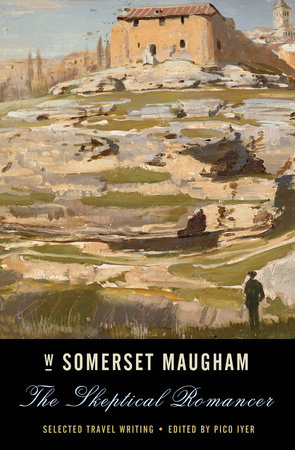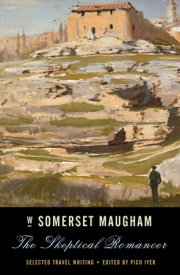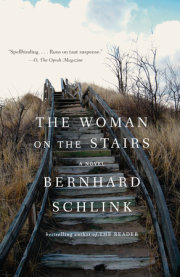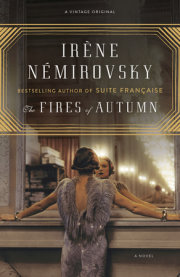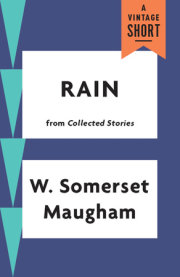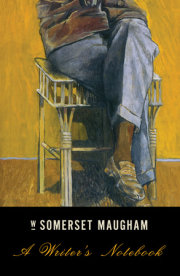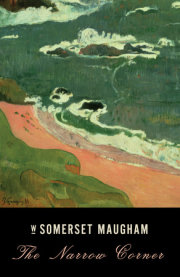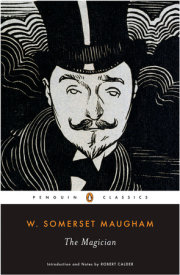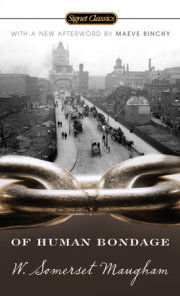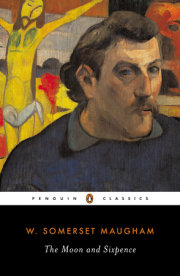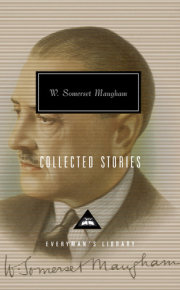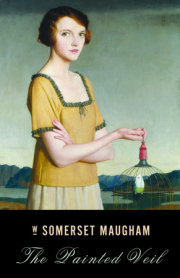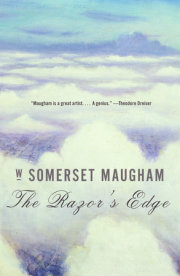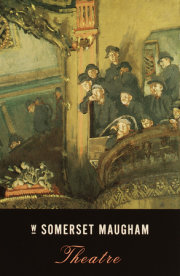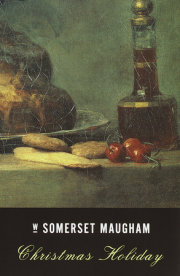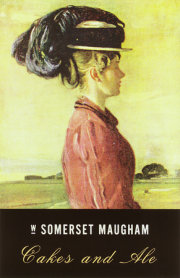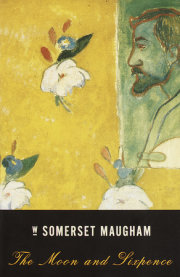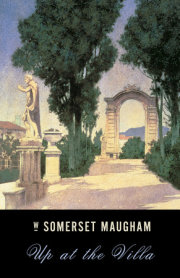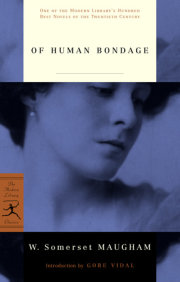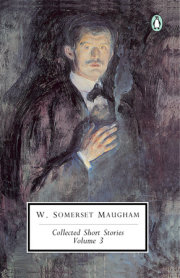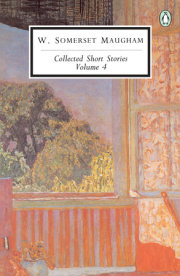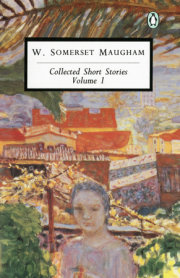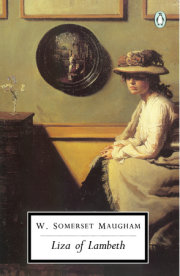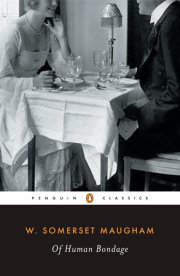I N T R O D U C T I O N
——
When one travelled in the East, it was astonishing how often one came acrossmen who had modelled themselves on the creatures of his imagination.
—W. Somerset Maugham, of Rudyard Kipling
What makes a great traveler? Those of us who spend much of our lives on the road—or on the page—often beguile an idle hour or two with the question. The ideal companion should be open to every person or encounter that comes his way, perhaps—but not too ready to be taken in by them. She should be worldly, shrewd, her feet firmly on the ground; and yet she should be ready to surrender, if only for a moment, to the magic and excitement of what she could never see or do at home. He should be curious, observant, fun, wry and kind; he should be able to spin a spell-binding tale before the Royal Geographic Society in London and then throw it all over for a crazy romance in the South Seas.
The heart of the conundrum, really, is that the people we like to spend time with on the road are often sensible, and yet aware of the limits of sense, and the virtue of being senseless every now and again. They’re rooted enough to be up for every possibility. They shouldn’t have an agenda or overwhelming prejudices, and they should be as able to see to the heart of the natives of any country as to their fellow travelers. Maybe what they really offer is a happy blend of steadiness and surprise.
I draw up such lists myself, often, and then I look across the room and realize that there’s one person I know who fits the bill ideally. Somerset Maugham was celebrated in the England of his day as one of its most successful dramatists and is cherished, even now, almost half a century after his death, as a spinner of classic tales of exploration and flight that Hollywood seems to turn into fresh movies every year. Of Human Bondage, The Razor’s Edge, The Moon and Sixpence all define Maugham for many as a cool, even feline observer of the human tragi-comedy who could be at once startled and amused by the stories he picked up and set in colonial Asia or the Pacific. The person behind them, we sense, was someone always hungry for the new, and ready to follow any opening or character he met, down any alleyway, in search of a story, yes, but also in search of a sense of escape and even transcendence.
Maugham’s voice and presence have so much the feeling of Edwardian England and the silk dressing-gown, however, that it’s easy to forget sometimes that he was born in Paris, and that his early letters were all written in perfect French (for English schoolboys the secret language of romance). He studied in Heidelberg for two years as a teenager, he went to live in Seville for sixteen months in his early twenties and, having already mastered Greek, Latin, French, German, Italian and Russian, he set about learning Spanish. He served in World War I as volunteer ambulance driver and nurse, even though he had four plays on at the time in London’s West End – and then became the West’s main source of intelligence in Russia during the weeks leading up to the Bolshevik Revolution. By the 1920s, before most people, even those of means, were traveling very widely, he was going to Borneo, to China, to the South Seas and Japan, and, having spent early sojourns in Paris and Capri, he passed the last thirty-nine years of his life in the south of France. There he had another memento of the larger world, a secret symbol to repel the evil eye, painted on his outside wall—the same symbol he slipped on to the cover of his books.
The writer who would at once take his reader on journeys to India, Samoa, Hong Kong and yet somehow always set him at his ease, the man of high culture who often asserted,‘‘The best use of culture is to talk nonsense with distinction,’’is best revealed for me in his early novel, The Merry-Go-Round, published when he was thirty. That book, typically, unfolds an interlocking set of love stories—stories of great passion and drama—as they are seen by two slightly detached observers: one is a fifty-seven-year-old spinster, Miss Ley, who takes in everything with a wise serenity and pronounces grandly, and somewhat skeptically, on human folly and illusion. The other is a burning young medical student, Frank Hurrell, who cannot contain his hunger for experience. ‘‘My whole soul aches for the East, for Egypt and India and Japan,’’ he cries out at one point. ‘‘I want to know the corrupt, eager life of the Malays and the violent adventures of the South Sea Islands . . . I want to see life and death, and the passions, the virtues and vices, of men face to face, uncovered.’’ The language is purple, but the sentiments are as alive and quickening as anything in Hesse or Kerouac, and it’s hard not to recall that Maugham was himself a medical student, who learned early about human suffering, and longed, as he told us, ‘‘for fresh air, action, violence,’’ to be away from the hushed drawing-rooms of England. Even when young, in short, he could summon the perspective of both an elderly, disengaged observer and an eager romantic—and show himself as close to woman as to man.
In practice, only four of the seventy-eight books Maugham turned out are generally placed on the shelves marked‘‘Travel’’: his classic account of a journey from Rangoon to Haiphong, The Gentleman in the Parlour, brought out in 1930; a series of sketches and snapshots called On a Chinese Screen, from 1922; a very early, boyish series of wanderings around southern Spain, The Land of the Blessed Virgin, published in 1905, that he delighted in mocking and repudiating in later works for its flowery style and juvenile effusions; and a meditation on some figures in Spanish history – explicitly not ‘‘a book of travel,’’ though often categorized as such, Don Fernando, in 1935. Yet travel lay behind much of his work, if only because, as Miss Ley says, ‘‘Curiosity is my besetting sin,’’ and as is written of Frank Hurrell, his ‘‘deliberate placidity of expression masked a very emotional temperament.’’ When it came to his masterly appraisal of his life, The Summing Up, and to his A Writer’s Notebook ( joined with The Summing Up to make The Partial View), it’s hard not to notice how many of Maugham’s central, formative experiences came on the road, or through it.
More than that, his young book on Spain, though certainly ornate, and without the crisp definition that marks the mature Maugham style, shows us the master traveler as he would always be, under the surface, and before he became an institution and the famous writer ‘‘Somerset Maugham.’’ What we see in it is an ardent, dewy, rebellious boy—a ‘‘romancer by profession,’'as he puts it—anxious to be away from England’s enclosedness and gray, and at home already in the south, the world of sunshine and abandon. Later he will develop a more measured, poised voice that has the sound of skepticism trying to keep its boyishness at bay; but here, in this unselfconscious work, is already an original and grown-up sensibility, compounded of a susceptible heart, a careful mind and a spirit that is eager to tangle with the essential questions of life and all its meanings.
What hit me, rereading many of his books to put this collection together, is that Maugham breaks almost every law you might lay down in Travel Writing 101: he generalizes wildly, he claims not to be interested in the places he’s visiting, he admits that he’s only hunting for material and often his digressions go on so long that we lose all sense of where we are (in the middle of Southeast Asia, he spins out a long story, not clearly relevant, of a novelist in London). He likens trees in a Thai village to ‘‘the sentences of Sir Thomas Browne,’’ tells us that Asian clothes are much less interesting and various than those you’d see in Piccadilly and cheerfully admits, in the middle of wildly colorful and unvisited landscapes, that his great delight, traveling through Asia, is reading F. H. Bradley’s Appearance and Reality.
Yet the cumulative effect of all these transgressions is to give us the impression, as not every traveler does, that he’s having fun. He never seems bored and he seldom loses his temper. The sentences, scrupulously clear and relaxed and unpretentious, seem to come to us from a cozy armchair (or the sedan on which he’s sometimes being carried), and he at once wins our trust with his lack of design and earns our affection precisely by telling us that he’s lazy, unfair and uninterested, a great believer in breaking all the rules. It’s as if he’s simply taking his mind and imagination for a walk, and as they forage, as any dogs might do, he never quite knows where they’ll take him. The air of casual ease is so distinct, you may overlook the fact that he’s sleeping for days in an open rowboat, has a temperature of 105 ( just before offering a brilliant appraisal of Buddhism), went on a sixty-day march when he was close to fifty years old.
It might almost seem that circumstances conspired to make Maugham a traveler (and that kindred spirit, an explorer on the page, drawn to everything farthest from himself ). He was born in a country not his own, and when he went to England, at the age of ten, after the sudden death of both his parents, he felt a foreigner there. His training as a medical student encouraged, no doubt, his gift for listening, and for drawing people out, concentrating attentively on their stories and bringing to them a mix of compassion and discernment even as he linked them to certain textbook patterns. His lifelong stammer, moreover, made him even more of a listener, always more eager to hear others’ symptoms than to tell his own; reading him, I am often reminded of the old adage you still hear everywhere in Asia about men being given two ears, two eyes and only one mouth, so as to remember they should see and hear at least twice as much as they say.
Maugham’s father, when the novelist was a boy, had traveled to Greece, Turkey and Morocco, bringing back stories and memories to beguile his youngest child; his mother, when young, ‘‘could prattle Hindustani much better than English,’’because her own father had served in India. Maugham was a product of Empire, after a fashion, therefore, but never an admirer of it (he could barely speak English when he moved to his ostensible motherland). Where many people travel in order to become something—and to escape the failures that surround them at home—Maugham seemed to travel in order to become nobody, just an anonymous gentleman in a parlor in an inn, and to flee the successes that, he always said, could cripple a man as much as failure could. And as a playwright and a novelist, his business was, explicitly, to get into other people’s minds and lives and voices; traveling, he seemed unable to believe in his own prejudices and always eager to be turned on his head.
He knew the ‘‘world,’’ in the sense of fashionable society, but he was never much taken with it; his early works, like his first book Liza of Lambeth, were criticized for paying too much attention to the poor and desperate. His work as a spy—like many a writer, he must have been a natural—doubtless intensified his habit of picking up information, reading the secret codes of life, observing without being observed in turn. Though sometimes caricatured as a homosexual who lived in a world of privileged men, he had four extended affairs with women (one of whom he married), and thus knew both sides of the table in that sense, too. One of his siblings became Lord Chancellor, a pillar of the British establishment; the other was a gay writer of sorts who never rode on a train—he had a kind of vertigo—and took his own life, with nitric acid, in front of his younger brother’s eyes.
Always as keen and lucid an observer of himself as of everyone else, Maugham saw that travel was in his blood and in his destiny, a place where his needs and his preferences converged. His stammer, he said, made him ‘‘a wanderer on the face of the earth’’ and his interest in everything prevented him from ever staying long in one place. His protagonist in The Moon and Sixpence, Charles Strickland, is ‘‘eternally a pilgrim, haunted by a divine nostalgia,’’ a little as Frank Hurrell and then Larry Darrell, the hero of The Razor’s Edge, are; Maugham wrote one novel, The Explorer, based partly on the adventures of Stanley and a play, East of Suez, based on Kipling’s ‘‘Ship me somewhere east of Suez, where the best is like the worst.’’
‘‘I was ever looking forward, generally to something I proposed to do in some place other than that in which I found myself,’’ he wrote in a piece called ‘‘On the Approach of Middle Age’’ (included in the anthology of unpublished pieces, A Traveller in Romance). And his autobiography confesses to us that ‘‘I never felt entirely myself till I had put at least the Channel between my native country and me.’’ At ninety, he spoke of going to Marrakesh — ‘‘I shall not stop my travelling’’—as if what kept him young and awake, even then, was his abiding feeling that he ‘‘would sooner be a fool of twenty-five than a philosopher of fifty.’’
Maugham, then, was a born subversive who, in his unorthodox way, was always looking for the road less traveled and the humble pleasure overlooked. ‘‘For my part,’’ he wrote with typical assurance in his memoirs, ‘‘I would much sooner spend a month on a desert island with a veterinary surgeon than with a prime minister.’’ More than that, he was a habitual countermoralist, who could not restrain himself from pricking at piety and preaching wherever he found it, and yet, unusually, was constantly interested in wisdom and philosophy and mysticism while professing no interest in religion. His official assessments of himself were never quite straightforward— they always diminished his skills too much—and yet you get tantalizing glimpses of him in the travelers he records, like the one in China who ‘‘collected neither plants nor beasts, but men.’’Most of all, his creed, insofar as he had one, was to try everything—to smoke opium and to visit prisons as well as chapels—and his advice to young wanderers at the end of his life was to do everything, to go everywhere, to explore the vicissitudes of the world. ‘‘A novelist must preserve a child-like belief in the importance of things which common-sense considers of no great consequence,’’ he wrote, late in life. ‘‘He must never entirely grow up.’’
-Pico Iyer
Copyright © 2009 by W. Somerset Maugham. All rights reserved. No part of this excerpt may be reproduced or reprinted without permission in writing from the publisher.

